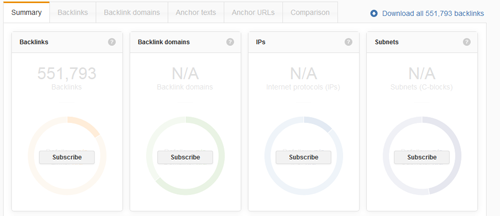Search Tools Every SEO Should Try

Web professionals have a variety of channels from which they can use to drive end-user traffic (advertising, email, social media), but natural or organic search (from the likes of Google and Bing), is always one of the most appealing and sought after. That's because it's free! Of course, there is an immense cost associated with SEO initiatives - time.
It takes time to develop high-quality (immersive and authoritative) content, it takes time (and knowledge) to remove technical barriers and optimize the digital experience, and it takes time (and a great deal of effort) to get others to credit your site - thanks to its awesome experience and authoritative content - in the form of a link.
Natural/organic search is free in the sense that enterprises aren't paying for it with dollars, but rather time. With a firm and formal understanding of what is necessary to optimize for search (e.g. content, links, speed), it is possible to take advantage of tools to shorten the time associated with the required SEO tactics. Let's take a look at a few search tools to help an enterprise's search optimization efforts.
GuestPostTracker
Content is essential to successful SEO campaigns but publishing content on one site alone won't enable you to build authority or generate the links required to optimize your campaign. Fortunately, many sites accept guest posts, or content submissions; you just need to know where to look. You could certainly search for sites on your own that accept guest posts but new outlets are emerging every day, which is why you should try GuestPostTracker. The site provides a categorized list of up-to-date blogs currently accepting guest posts. SEOs can not only identify sites they can submit to, but also keep track of to whom they have previously submitted.
![]()
WebMeUp
Backlink checkers are nothing new in the realm of SEO; in fact, they've been around pretty much since SEO emerged as a means to drive end-user traffic. Links matter to the success of an SEO campaign, but it's almost never easy to find who is linking to your website or the websites of competitors. That's why SEOs turn to solutions like WebMeUp.com. SEOs can see the total number of backlinks, the actual domains that are linking, and even the IP ranges from where they come, in addition to a whole lot more data that will be useful to SEO campaigns.

RankTrackr
Before the age of personalized and localized search results, tracking a website's pages actual position or rank on the search results for a particular keyword was nearly an industry in itself. Things have changed on search engines but that doesn't mean it is no longer important to understand where pages are placing on the SERPs (as a result of all SEO efforts like content development and link building). RankTrackr is one of the best tools for SEOs who still need to understand how their sites pages are actually being ranked. The solution shows historical rankings, provides reports, advanced filtering, customization and competitor analysis.
![]()
Know of another tool that SEO pros should try? Share it below with a comment!









